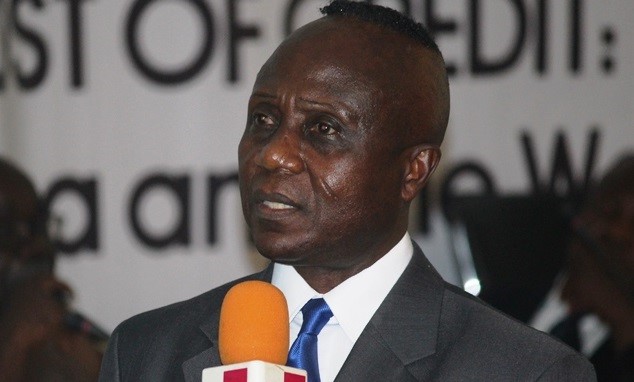The Institute of Economic Affairs (IEA) is calling for an expansion of the current ‘strict’ inflation-targeting framework operated by the central bank – arguing that the measure predominantly focuses on demand-side factors, while the major drivers of domestic inflation are supply sided.
Speaking during a roundtable session on the theme ‘Making Monetary Policy in Ghana More Fit-for-Purpose’, Director of Research at the Institute, Dr. John Kwakye, explained that despite not being a direct money control mechanism, inflation-targeting is based on the theory that inflation is predominantly a demand phenomenon; as such, it seeks to control demand as a pathway to controlling inflation.
He added that the underlying assumption would be more applicable to advanced countries that do not face significant supply constraints; saying this is largely responsible for the failure of inflation-targeting in achieving its goal of low and stable prices and interest rates since its adoption by the Bank of Ghana in 2007.
“In more advanced economies, controlling demand may be enough to control inflation. However, in developing economies, supply constraints may be principal originators while demand can play a propagating role.
Failure to consider this, he cautioned, could seriously erode the effectiveness of the monetary policy.
With staples such as food and non-alcoholic beverages accounting for 43.6 per cent of the total weight of the Consumer Price Index (CPI), Dr. Kwakye proposed a micro-targeting of principal supply-side factors, including fuel, to curtail inflation.
“In Ghana, food prices, fuel prices due to shocks in global prices, and taxes which build-up to the ex-pump price, as well as currency depreciation, represent the important determinants of inflation,” he noted.
The Institute, therefore, called for the reinforced efforts required to scale up the production, preservation and processing of food. Other proposals include minimising the nation’s fiscal deficit and downward adjustments to lending rates through actions from the government, the BoG and commercial banks.
MPR to remain unchanged
Ahead of the Bank of Ghana’s 104th Monetary Policy Committee (MPC) meeting’s conclusion, the Institute of Economic Affairs (IEA) is forecasting that the benchmark interest rate will be held constant at 14.5 per cent.
Despite rising domestic inflation, which has breached BoG’s upper limit of 10 per cent – and is driven by high food and fuel prices, supply bottlenecks, as well as upwards exchange rate pressure – IEA believes the Committee will not raise the rate following consecutive meetings.
“Looking at the balance of risk between inflation and growth, my judgement is that the inflation risk outweighs the growth risk at this time; and on that score, you would say that the policy rate should be adjusted upward. However, recalling that the rate was increased by 100 basis points just two months ago, at the last meeting, the likelihood of another increase is low.
“My expectation is the Committee will play it safe by holding the rate as it is,” Dr. Kwakye stated, adding that this will allow the Committee some time, until its next meeting, to have a clearer picture of the inflationary trend and make a decision accordingly.
As central banks the world-over grapple with the option of increasing rates to quell rising inflation, some analysts are advising against sharp decisions, arguing that the noise from the Yuletide-related demand as well as improved economic performance will moderate inflation downwards as the year progresses.










